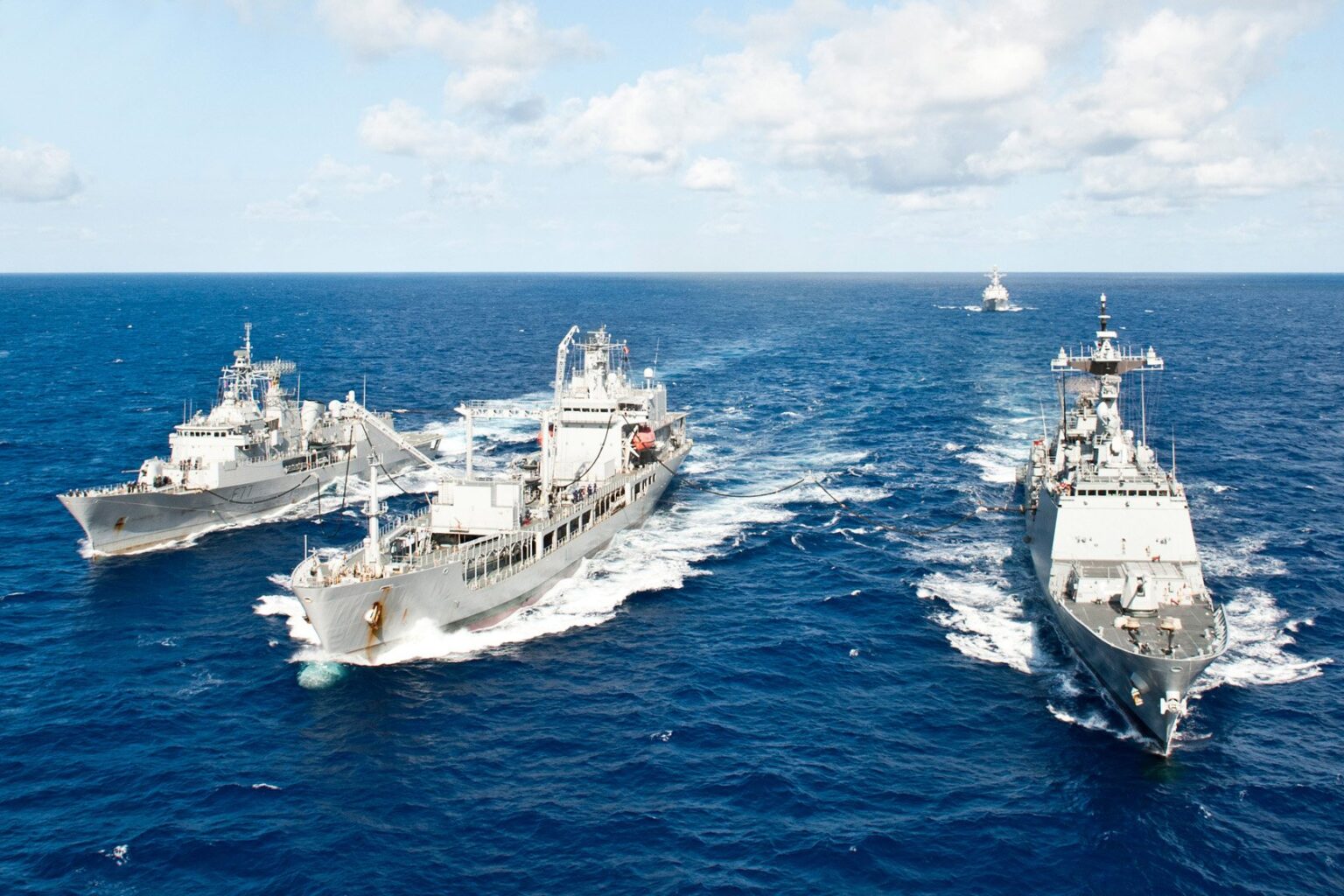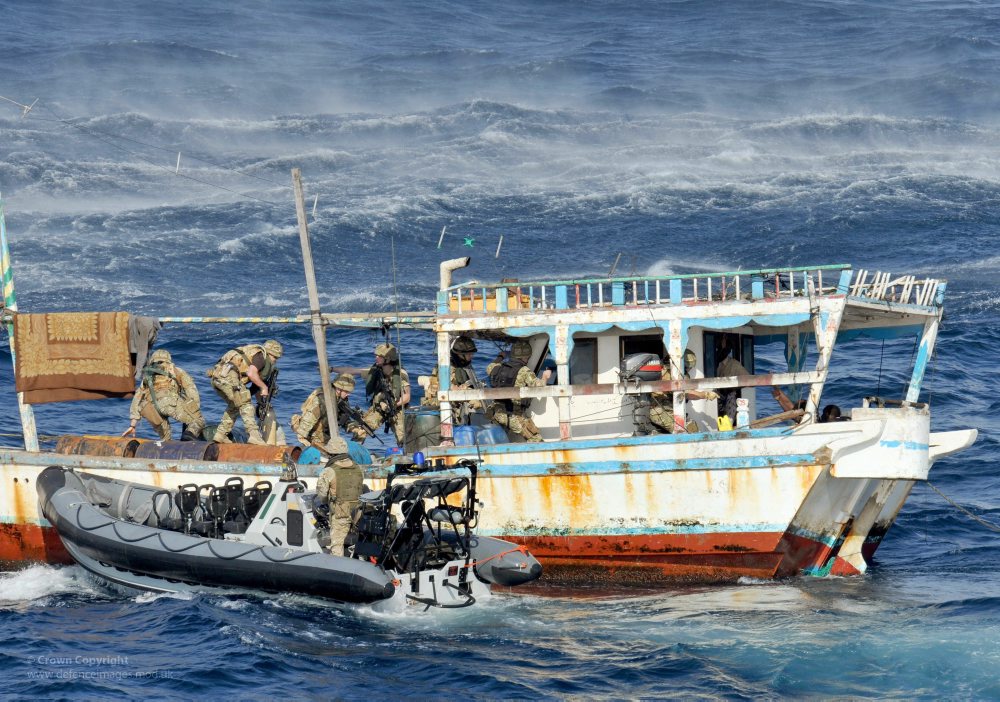Hot Commodities: Tidal Waves and Tanker Trucks
Tidal Waves and Tanker Trucks
The Islamic State’s money comes in significant part from energy. So if the world is going to take on ISIS in a serious way, it’s going to have to take on its energy resources.
Published by The Lawfare Institute
in Cooperation With

Tidal Waves and Tanker Trucks
The Islamic State’s money comes in significant part from energy. So if the world is going to take on ISIS in a serious way, it’s going to have to take on its energy resources.
That seems to be happening. The New York Times reports that U.S. warplanes have intensified attacks on oil supply infrastructure controlled by the Islamic State in Syria. For the first time, the military targeted the trucks used to transport oil, destroying 116 of the estimated 1,000-plus-truck fleet the organization uses to produce, refine, transport, and sell oil.
The strikes come in the wake of Friday’s attacks in Paris, which killed at least 129 people, and last week’s double suicide bombing in Beirut, which killed 40 more. But they are part of a larger campaign aimed at the group’s oil operations that actually began last month.
How important is oil for ISIS?
According to the UN, oil sales represented the terrorist organization's largest source of revenue in 2014. While estimates differ, oil provides the terrorist group an estimated $1 million to $2 million per day and up to $450 million annually.
Paul McLeary writes in Foreign Policy that U.S. military officials have decided to increase the intensity and scope of the attacks, over previous efforts deemed “too cautious.” Chairman of the Joint Chiefs of Staff Joseph Dunford said last week that the US would be “more aggressive” in attacking energy infrastructure, with the goal of destroying ISIS’s oil enterprise.
Will it be enough? According to David Francis and Dan de Luce, also writing in Foreign Policy: No. The authors argue that although the revenue from oil sales is certainly important, it it is far from the group’s sole source of cash. Oil revenues come in third, behind extortion and so-called taxes, which comprise the majority of revenue. The authors argue that it is control over land and people, not over hydrocarbon resources, which provides the bulk of ISIS’s revenue.
Not that oil is unimportant. An article in the 2015 Global Terrorism Index calls oil ISIS’s “black gold.” Author Christina Schori Liang argued that oil is important for the group not only as a revenue stream, but also as a source of leverage, an avenue for money laundering, and a tool of coercion. Furthermore, the existence of other funding streams only exacerbates the larger problem. The group’s “diverse financial portfolio makes it the richest terrorist organization in history.”
Ironically, while ISIS profits from oil—and from the ability to undercut international prices on the black market—the prevailing low price of oil may diminish Iraq’s ability to fight the terrorist organization. The government’s revenues are falling. For more on ISIS funding and other troubling trends in global terrorism, Mark Gilbert at Bloomberg View has a piece on the “the intolerable costs of terrorism in lives and dollars.”
In the City of Lights, The Show Must Go On
Amidst the national mourning and the ongoing terrorist manhunt, French Foreign Minister Laurent Fabius said the COP 21 Climate Conference “must be held.” More than 10,000 government representatives, 7,000 observers, and 3,000 journalists from around the world plan to attend the proceedings, scheduled to take place from November 30 to December 11.
Politico EU reports that the talks will take place amidst increased security and some public events may be cancelled or restricted. The Guardian reports that public climate marches will not be allowed. According to the statement by French officials, “All demonstrations in organized in closed spaces or in places where security can easily be ensured can go ahead.” Puppets everywhere are weeping.
UNFCCC executive secretary Christiana Figueres, “the woman who could stop climate change” according to a New Yorker profile, expressed her condolences for and solidarity with France on Twitter: “Profound chagrin. Ma solidarité avec Paris et la France toute entière.” Her response to whether the show would go on? “Of course #COP21 proceeds as planned. Even more so now. #COP21 = respecting our differences & same time acting together collaboratively.”
Union Amid Disunity
Meanwhile, in Brussels--itself in the spotlight this week over its own security situation--the quest for an ever more perfect energy union continues. The European Commission released its State of the Energy Union report on Wednesday, concluding that although many EU member states are making progress in their efforts to increase energy interconnections, integrate markets, and diversify supply, much work remains.
The report itself is a glossy overview of progress made and tasks remaining. The Commission Staff’s Working Document, however, identifies indicators against which to measure the Union’s progress in improving energy security. These include, among others, import dependency, reliance upon a single energy supplier, adequacy of gas infrastructure, and electricity interconnection capacity.
The Energy Union, born out of heightened energy security concerns related to the Ukraine conflict, is the brainchild of former Polish PM Donald Tusk. Although many in the U.S. struggled to equate market integration with energy security, focusing on more production, self sufficiency, and an attractive but contradictory notion of energy independence. But in Europe, more integration does mean more options, solidarity, and energy interdependence. According to Tim Boersma at Brookings, “A lack of such market integration has arguably been the greatest threat to European energy security to date.”
The individual country reports for the Baltic States illustrate Boersma’s point and help explain why these states have been some of the most vocal when it comes to concerns about Russian aggression--energy-related or otherwise--and why integration and interconnection offers the best security against it. Following the closure of its nuclear plants, Lithuania has relied on Russia for almost all of its gas and nearly half of its electricity needs; likewise, Latvia relies nearly entirely on Russia for natural gas.
The recent opening of Lithuania’s LNG terminal, however, brought the country new supply options and 20 percent reduction in prices from Russia—either in recognition that its monopoly days are waning or in an attempt to undercut the price, or both. The facility’s name, aptly enough, is Independence. LNG understandably figures prominently in the Commission’s report (and in U.S. rhetoric about energy security), as do other measures that increase supply options and limit dependence on any one supplier.
Outlooks and What to Look Out For
The state of the energy union wasn’t the only energy market outlook of late; on November 10, the IEA released its 2015 World Energy Outlook. At an event the following day in Berlin, IEA Director Fatih Birol announced plans to “modernize” the IEA by, among other things, increasing its constituency to include developing countries and rising powers, namely China, whose energy demand serves as a major driver of international energy trends.
But while many analysts and countries, including the Saudis, anticipate that Asia will continue to play a dominant role in global energy demand, China’s outsized role as a demand driver may be diminishing—with the potential to slightly impact the bottom line of producers like the Saudis. Apart from shale gas, China may be the biggest energy story in recent memory. Birol predicted that history’s largest demand growth from any single country may soon come to a close as economic growth in China slows and begins to decouple from the country’s energy demand.
There is still ample reason to bring China into the IEA fold; the 2015 WEO projects that China will remain the world’s largest producer and consumer of coal, will become the world’s largest consumer of oil, and will double its total energy demand by 2040. Along with predictions that the world of $50/barrel oil will not last long, this news should comfort the increasingly cash-strapped energy producing countries.
India offers further comfort.
That country is currently giving Japan a run for its money to become the world’s third largest oil consumer, and many observers are starting to notice India’s increasing need for energy of all kinds, not just oil. The 2015 WEO proclaims that “India seizes the centre of the world energy stage.” With one sixth of the world’s population but only six percent of world energy use, there is huge potential for demand growth here. And with 240 million Indians still without electricity, Prime Minister Narendra Modi has a lot of work to do before he can make good on his campaign pledge to modernize India and increase energy access—which you can track here if you are so inclined.
What Else to Watch?
Kaliningrad
Politico Europe reported earlier this month that the Baltic States, in their quest to improve energy interconnections with the EU and minimize the ties and dependencies that bind them to Russia, want to end their electricity interconnection with the Russian exclave of Kaliningrad on the Baltic Sea. Currently, the systems are connected, in that they run on the same voltage and frequency, and they operate under the same backup rules for emergencies and outages. While the Baltic states have planned to transition from Kaliningrad to a European grid connection over the next decade, they now want to pick up the pace, raising Russian concerns over the future of Kaliningrad’s energy security.
This comes amid reports that the Commander of the U.S. Army in Europe, Lieutenant General Ben Hodges, warned that Russian defenses in Kaliningrad could interfere with the defense of the Baltic States. Red flags went up over a Russian military build-up in Kaliningrad over the summer, and there are concerns that Russia has or may station Iskander missiles there.
Kaliningrad, formerly northern East Prussia until the Russians seized it from Germany during World War II, is home to the Russian Baltic Fleet and was the only Russian naval base in Europe that reportedly remains ice-free year round--until Sevastopol. Kaliningrad, ironically, also happens to be the birthplace of Immanuel Kant, contributor to the intellectual foundations of European liberalism and promoter of republican governments and the liberal international system that Vladimir Putin does not much admire. Kaliningrad city is also a sister city to Klaipėda, Lithuania, the home to LNG terminal Independence.
And Cyber. Because it Keeps Meghan O’Sullivan Up at Night
When asked what keeps her up at night in a recent Wall Street Journal interview on the future of the U.S. energy industry, Meghan O’Sullivan, Director of the Geopolitics of Energy Project at Harvard, responded: “If one is going to lose sleep over potential energy disasters, focus on the growing threat of a cyberattack.”
She isn’t alone. Energy executives, IT consultants, and former Secretary of the Pennsylvania Department of Environmental Protection have all acknowledged that cybersecurity is a top security threat for the energy sector--and one that is only expected to grow with the increasing digitalization and interconnection of our energy systems.
And if that cheery assessment doesn’t keep you up at night, this might.





